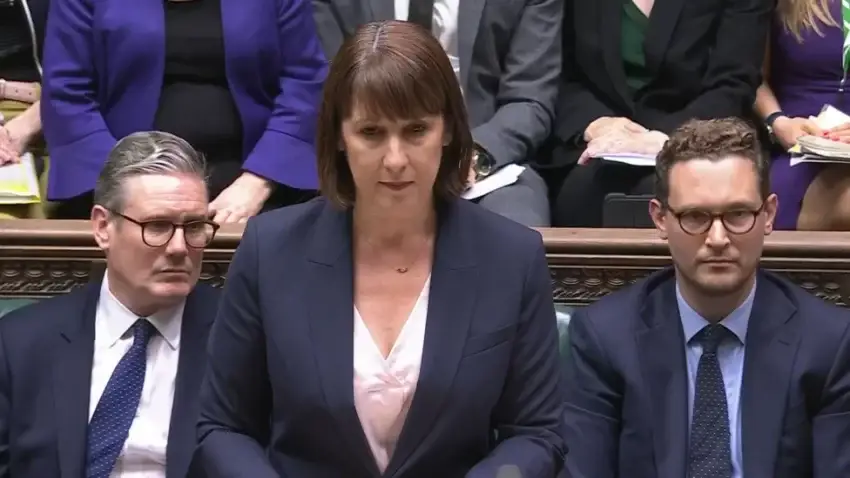Rachel Reeves has announced a significant change in financial policy. She intends to eliminate winter fuel payments for 10 million pensioners. This bold move aims to redirect £5.5bn towards public sector pay rises.
However, the impact of this decision is far-reaching. Pensioners who depend on this benefit for heating costs will be affected. Meanwhile, the majority of the savings will go into a £9.4bn pay settlement for public sector workers.
Public Sector Pay Rise
Rachel Reeves has decided to scrap winter fuel payments for nearly 10 million pensioners. This move aims to fund public sector pay rises. The Chancellor plans to save £5.5bn to address a glaring £22bn shortfall in public finances.
The majority of these savings will go towards a £9.4bn pay settlement for public sector workers. This pay settlement excludes a 22% pay rise for junior doctors. The decision marks a significant shift in financial priorities.
Impact on Pensioners
The new changes will restrict winter fuel payments to pensioners already receiving means-tested benefits. This means around 10 million pensioners will lose this benefit for the first time.
Currently, all 11.4 million pensioners get an extra £200 for winter heating costs. Pensioners over 80 get £300. However, the new measures will save £1.4bn this year and £1.5bn next year by reducing recipients to only 1.5 million households.
Future Fiscal Measures
Reeves also hinted at potential tax increases in her upcoming Budget on 30 October.
A Treasury document highlighted that the £5.5bn savings alone would not suffice to balance the books. This indicates that further fiscal measures are necessary. More cuts and tax increases might be on the horizon.
Political Reactions
Former chancellor Jeremy Hunt has strongly criticised Reeves’ plans. He described them as the “biggest betrayal in history by a new chancellor.”
Hunt accused Reeves of using a “fictitious black hole” to justify new tax rises. He believes this move undermines political trust.
Labour’s plans have sparked significant debate among political figures. The controversy is expected to continue as more details unfold.
Other Financial Changes
Labour is also looking to introduce VAT on private school fees starting January 1. This aims to prevent early down payments to avoid the 20% tax charge.
Whitehall’s day-to-day budgets are expected to be £21.9bn higher than previously anticipated. Increased costs related to asylum claims and illegal immigration alone amount to £6.4bn this year.
Additional spending on the NHS, Ukraine funding, and infrastructure maintenance has further strained public finances. Labour’s financial strategy is under scrutiny.
Policy Changes
Labour will terminate the Rwanda asylum scheme.
The party will also cancel the Dilnot reforms, which were designed to allow people to retain more of their savings when paying for care costs.
This decision is expected to have wide-ranging implications, affecting many aspects of public and financial policy.
Economic Context
The decision to remove winter fuel payments comes amid broader economic challenges.
Public finances have been strained by increased costs in several areas, including asylum claims and healthcare.
Reeves’ measures are part of a larger strategy to stabilise the economy. However, the impact on pensioners and potential tax increases are key areas of concern.
Public Opinion
The public has expressed mixed feelings about the new changes.
Supporters argue that funding public sector pay rises is essential for economic stability.
Critics, however, highlight the negative impact on pensioners, who rely on winter fuel payments. The debate continues to polarise opinion across the country.
Looking Ahead
The upcoming Budget on 30 October is highly anticipated. All eyes will be on additional tax increases and budget cuts.
The economy is at a pivotal moment, and the public awaits further details from the Chancellor. What Reeves decides next will be crucial.
Rachel Reeves’ decision to cut winter fuel payments for 10 million pensioners to fund public sector pay rises marks a significant shift in financial priorities. While the move aims to address critical public finance issues and ensure fair pay for public sector workers, it has ignited widespread controversy. The impact on pensioners and the potential for further tax increases remain key points of concern.
The upcoming Budget on 30 October will be crucial in determining the next steps for the UK economy. As Reeves announced, further measures may be necessary to balance the books. Until then, the debate over this drastic policy change will continue to unfold.

